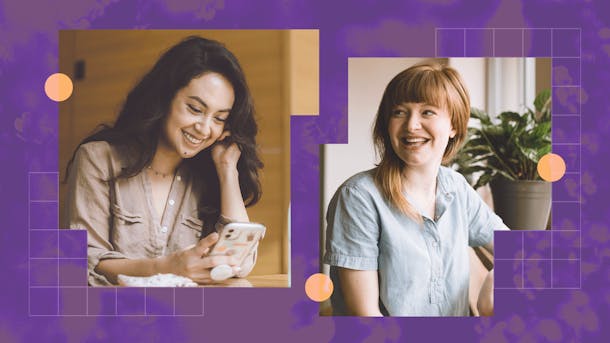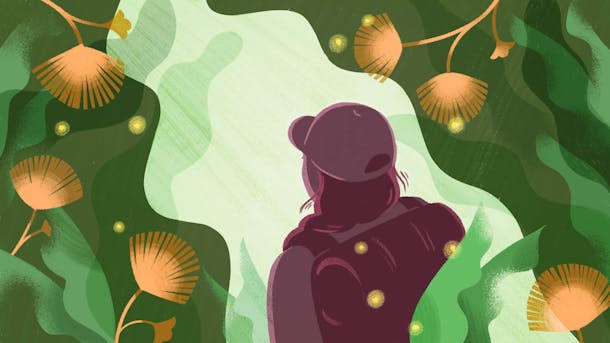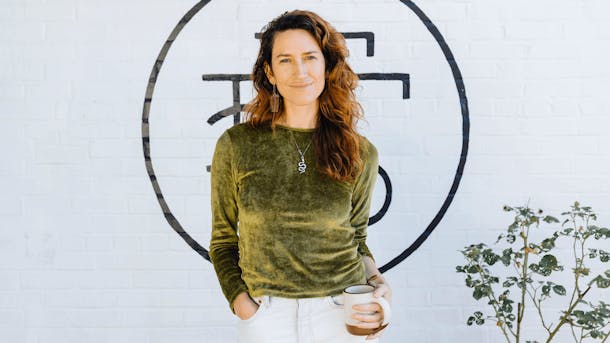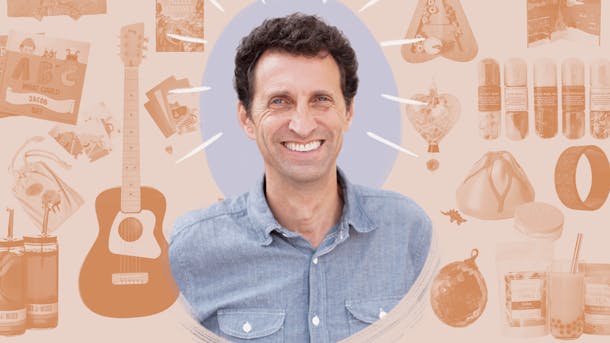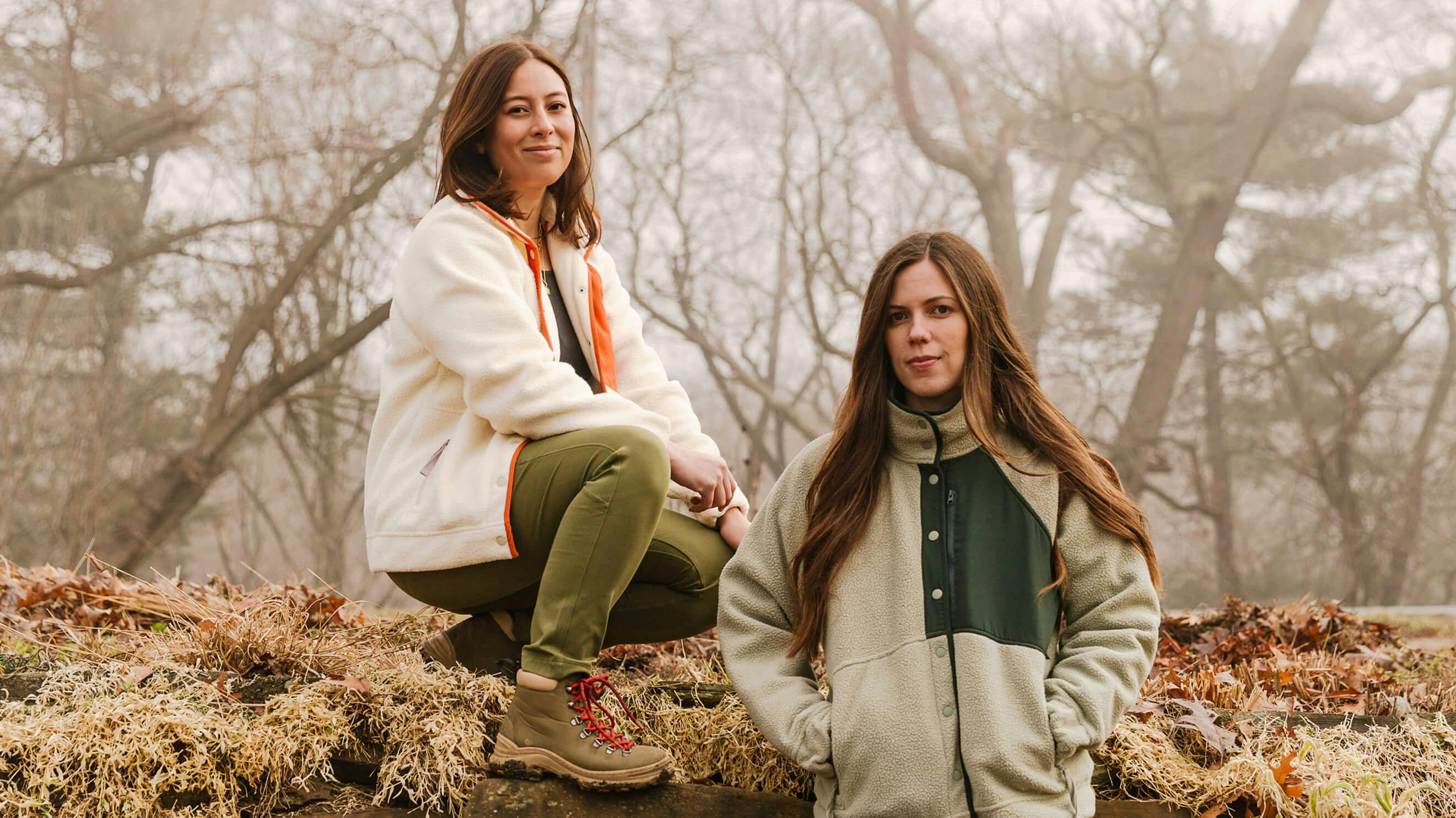
Feature Story
Shifting the shape of the outdoor industry
The co-founders of alder apparel are making the outdoors more welcoming for everybody — and every body type.
What did your last outdoor experience look like? A multi-day trek through steep mountain terrain? A 50-mile trail run? Navigating a whitewater expedition in the rainforest? Mountain biking the steep, slick terrain of the Utah desert?
No? Don’t worry. You’re not alone.
While the outdoor industry would have you believe that all the fit folks showing up in so many marketing campaigns for clothing and gear are the norm, the way most of us spend time outside looks different. And our bodies look different, too.
In fact, the average U.S. woman wears a size 16 — though very few outdoor apparel brands offer products in sizes beyond 12. This leaves a lot of women feeling ignored and without functional gear to get outside. The mostly white, mostly thin, and mostly muscle-bound depictions of women in the wild that have for so long dominated how outdoor products are designed and marketed just don’t reflect the reality of how women are spending time in the great outdoors.
Mikayla Wujec and Naomi Blackman, co-founders of outdoor recreation apparel company alder, are on a mission to offer clothing and community that tells a more authentic story.
Making sure that everybody can benefit from the powerful, positive impact of time spent outside — on both mental health and physical well-being — is the goal of the business they’re building. By offering inclusive sizing and designing outdoor apparel that reflects their customers’ experiences and needs, alder is inviting everyone to the (picnic) table.
And people are lining up to take a seat at that table. Launched via Kickstarter in 2018, alder is now shipping its rapidly growing product line to customers across the U.S. and Canada, partnering with outdoor retailers to sell in brick-and-mortar shops, and developing a robust community of women sharing the stories of how they thrive outside.
“Our ultimate goal is to make the outdoors as welcoming and as accessible as possible for people,” Mikayla said. “We want to make sure that more body types are able to enjoy the outdoors and that there's a safe space for people of all gender expressions and skin colors and ability levels.”
Alder's co-founders are ready to craft a new story, sparked by joy and grounded in both intentional ways of doing business and an equally deep personal belief that the outdoors belongs to everyone.
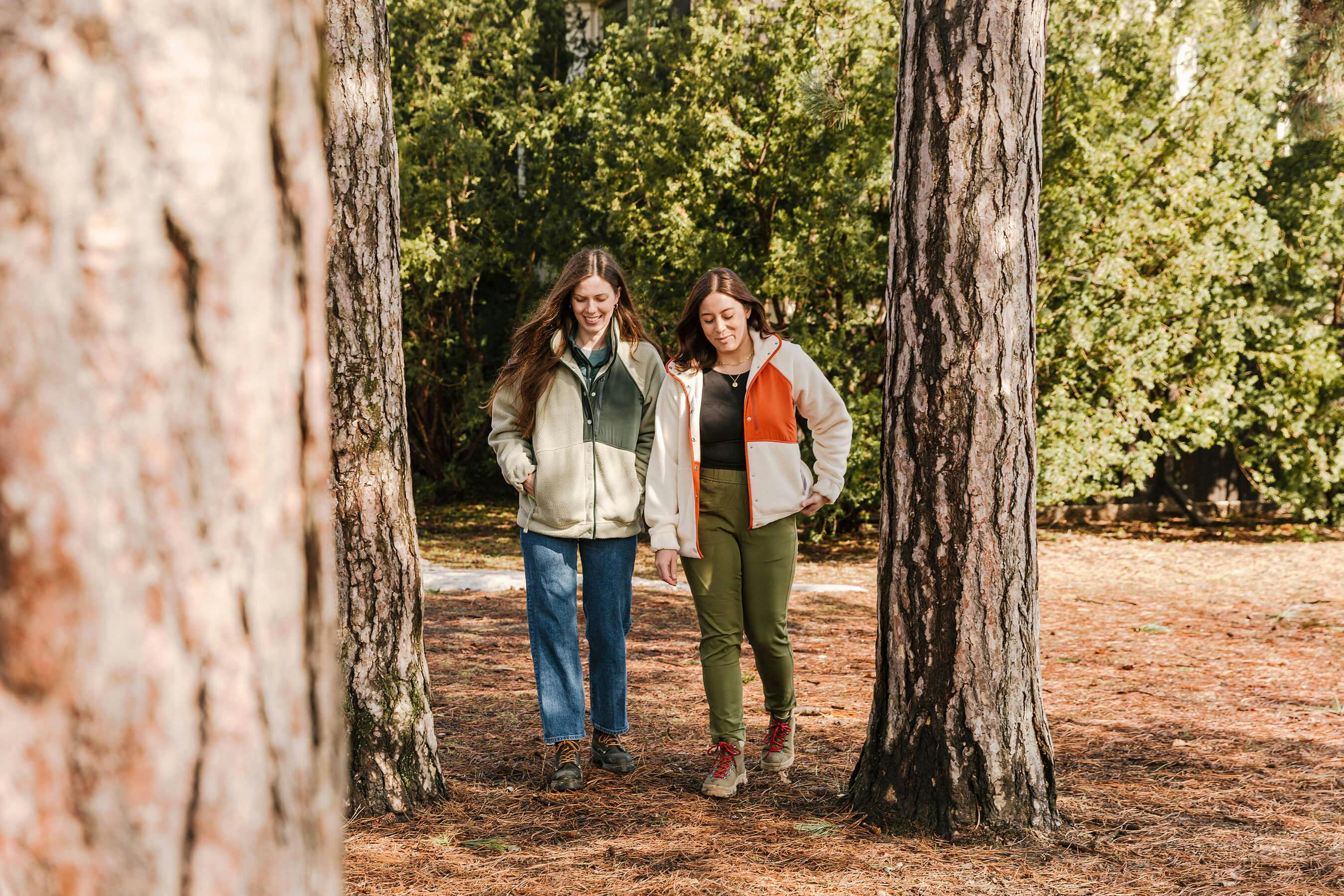
Everybody — and every body — deserves to be seen
Friends since they were 13, Mikayla and Naomi connected through school, sports, and hanging out with a close group of friends in their hometown of Toronto throughout middle and high school. They have also always shared a love for spending time outdoors.
“There's so much to absorb in an outdoor space, whether you’re looking at trees or observing the changes in a place through the seasons,” Mikayla said. “That has always been really relaxing for me.”
Naomi agreed. “To be able to get outside and regroup by pausing and looking around — to feel the sun and watch the sky — has always brought me joy and has been how I’ve grounded myself,” she said.

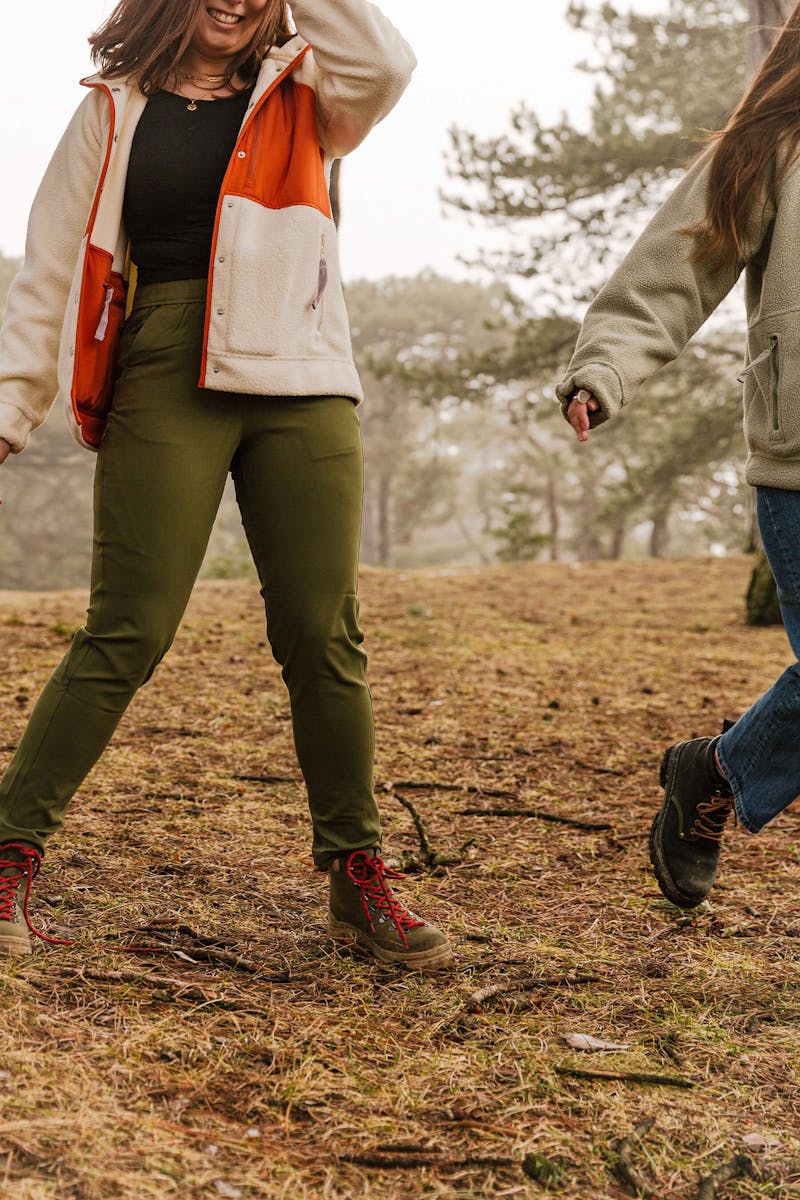
While Mikayla and Naomi both have a personal history of joy in time spent outdoors, they are aware that many women — themselves included, at times — have felt excluded from an outdoor industry that has developed a very narrow definition of an “outdoorsy” woman.
The co-founders had moved on from their shared school days in Toronto to thrive in their respective careers — Mikayla as an environmental scientist and marine conservationist (she was named a National Geographic Explorer in 2015), and Naomi as a marketing executive for fashion brands. As they navigated their careers and continued to spend time outdoors themselves, they repeatedly heard women in their personal and professional circles describe an outdoor industry that wasn’t seeing them.
“We heard so many people in our communities express a love for the outdoors but then qualify their feelings with, ‘but I’m not really the outdoorsy type,’” Naomi said. Many women felt they needed to be hyper-intense athletes or climb towering peaks to claim membership in what seemed an exclusive club — one with a pretty limited uniform selection.
“So many people are fulfilled by a walk, a hike, or just observing nature and breathing fresh air,” Naomi said. But many women don’t see this common story reflected in the outdoor industry, which leads many to feel they don’t belong — something Naomi and Mikayla are looking to change. “Everyone should experience the joy of getting outside,” Naomi said.
There has to be a better way: Open air pants for the win
While the co-founders shared a general awareness that many were being excluded by outdoor apparel trends, it was Mikayla’s frustration with hiking pants, specifically, that prompted their first conversations around solving the problem.
In 2016, she was living in New Zealand with her husband, and the couple was hiking a lot. On a hike one day, she started thinking through what an ideal pant design would look like — and it wasn’t the ubiquitous leggings that seemed to be the only option for women. What about pockets? How about fabric that actually breathed and felt good?
The idea of creating a more functional option stuck. When she returned home to Toronto, Mikayla messaged her childhood friend immediately. “Naomi had extensive experience and a successful career working in the apparel industry, and she has an amazing sense of style,” Mikayla said. It turned out, Naomi shared her frustration around women’s outdoor apparel, having spent years observing the way so many fashion brands excluded a large portion of the population across sizing, marketing, and distribution practices.
From that initial exchange, the women were off and running. “The combination of my experience with the outdoor industry and firsthand issues with limited functionality of so much of what is offered to women — together with Naomi’s creativity, entrepreneurial spirit, and experience in the fashion space — created this really fantastic synergy,” Mikayla said.

The pair saw an opportunity to break down barriers and acknowledge the voices and needs of women who had long been ignored. It was a chance to build something that aligned with their personal values, but it was also smart business as this was a largely untapped market.
While Mikayla and Naomi knew there was a wider community of women who sought time outdoors to reflect, revive, and move, they also knew they needed to understand specifically what women were looking for in outdoor gear. To get the data to back up their anecdotal experience, they started digging into research.
“We went out and just asked as many women as we could, ’What's missing from your outdoor wardrobe? What do you need more of?’” Research via Reddit forums, Facebook, and focus groups provided data from about a thousand women. The resounding answer: 92% of those surveyed said they wanted better outdoor pants.
“That was the inspiration for our first product, the Open Air Pants — and the genesis of our product design process,” Mikayla said. They continued to prioritize the needs of the powerful community they saw forming around their idea. “As we designed that first product, we continued that iterative loop with our community, asking questions to inform the design elements: Do you want pockets? High rise? Low rise? Mid rise? What colors?”
That deep dive into consumers’ needs and experiences was essential to establish product-market fit, but there was another reason the co-founders were determined to gather insights from their community early on: their environmental footprint. “As we considered what product we wanted to produce, we thought it was really important from a sustainability perspective to make something that people actually needed,” Mikayla said.
On average, consumers will wear a piece of clothing only seven times before they throw it out or give it away. The co-founders wanted each piece to be both durable and stylish — something that would take women where they wanted to go for years.
With that commitment in mind, they combined their market research and Mikayla’s early sketches to deliver a concept for the Open Air Pant to designers who created technical designs. The pants were in the pipeline.

As we designed that first product, we continued that iterative loop with our community, asking questions to inform the design elements: Do you want pockets? High rise? Low rise? Mid rise? What colors?
“We use our values as a yardstick”
As they moved forward, Mikayla and Naomi continued to be intentional about keeping joy and values at the center of the company they were building — and their lives as co-founders.
“One of the first things we did was sit down and come up with values that felt true to us,” Mikayla said. “We didn’t want to just put out stock values; we wanted to make sure that they really spoke to the kind of unique company we wanted to build in the outdoor industry.”
Articulating their commitment to sustainability, diversity and inclusivity in the outdoors, nurturing community, and intentionally investing in the next generation has given the co-founders valuable touchpoints to guide decision-making as they’ve scaled. “Whether we’re making decisions about operational steps, like hiring, or we’re talking about the brand to our consumers, we really want to make sure that we are continually speaking to our values,” Naomi said.
Those early decisions around operational practices and core values led them to create a company culture that prioritized physical and mental well-being. “We had both heard so much about startup grind culture, and we just really didn't want to be that kind of company,” Naomi said. “There's so much research out there about the benefits of practices like a four-day work week, flexible work, and transparent communication. We wanted to make sure we built those things into the way that we worked from the beginning.”
As they hired their first key employees, the co-founders worked with a consultant to prioritize diversity and inclusion practices in their hiring process, continued to model the culture they wanted to sustain by taking time out for movement, vacation, and mental health — and looked to their core values for guidance.
“We use our values as a yardstick to measure our growth and our ambitions at a strategic, high level, but also for daily things as a gut check,” Mikayla said. “If we're launching a new program or doing a collaboration or whatever the decision is, we ask, ‘Does this align with our values?’”

We didn’t want to just put out stock values; we wanted to make sure that they really spoke to the kind of unique company we wanted to build in the outdoor industry.
It’s easy for any potential customer to see the commitment to alder’s core values on the company site, including descriptions of the environmentally friendly fabrics used in each piece of clothing and the details (name, location, and working conditions) of the factories that produce the items. The site also offers a direct link for community members to offer input for new product design, reflecting the company’s commitment to mindful design that serves their community.
The branding and marketing also reflects the joy that is so central to alder’s purpose. It’s colorful and quirky and strong all at the same time. “I was super excited about developing a brand identity and overall look and feel,” Naomi said. “If you look at alder versus some of the more traditional outdoor brands, there's a big difference in the expression of our brand. Whether it’s through our logo or our photography, we really wanted to make sure that joy came through.”
The company’s core values and emphasis on joy also shine through in the diversity of body types and activities among the women who are represented across alder’s social feeds. The models — many of whom are customers and friends of the co-founders — wear a wide range of sizes and represent different ethnicities, ages, and body types. They are pictured in urban landscapes, desert canyons, and pine-filled forests. Interspersed with people and product shots, the feed includes tips for making the most of time outside, sustainability strategies, and lots of pet posts.
It’s authentic and fun, but it also highlights the confidence and empowering experiences of women who are thriving in outdoor spaces.
Finding the right mix: money and mission
If you’re following along with the good energy that is palpable in this story, you may also be wondering, “What about the money?” How has the joyful momentum of alder’s founders translated to the nitty-gritty of fundraising? It can be hard to stay true to your values in the face of pressures to grow and scale, and you can’t make pants for free.
Mikayla and Naomi are the first to admit that raising funds to build the company — first for the Open Air Pants and then the wider scope of what is now nine core products, a growing team, and all the complexities of a business that come with that growth — has been a challenge. Neither founder came to the table with fundraising experience, and they’ve had to learn a lot on the fly.
Alder's funding story began with a Kickstarter campaign to fund production of the Open Air Pant. Naomi and Mikayla launched the campaign with a $20k goal and ended the campaign with $170k. But that period of initial fundraising was not without significant bumps along the way.
The Kickstarter process itself was more complex than the co-founders had expected, and learning to navigate the campaign at the same time they hit a significant production issue with their first order, delaying delivery to early backers, was rough. Add to that the fact that their initial production and delivery cycle coincided with the beginning of the pandemic and related supply chain issues and general uncertainty — and it made for an intense time.
Despite the hardships, those early funds raised through crowdfunding gave them momentum. They saw the positive response from early supporters and a growing community as proof they had a viable idea and a loyal customer base.
Of course the growing support for their products also meant they would need to raise additional funds to expand the product line and scale the business. With no experience pitching, the co-founders would go on to pitch to over 150 investors to raise the pre-seed round of funding that followed the Kickstarter campaign.
Early on, Naomi said they pitched to “anyone and everyone, which was great in some ways as it led to more connections." But, she noted, it was exhausting. “Pitching was really draining — especially for us as introverts — and we realized we needed to narrow the scope.”
After ruling out investors whose portfolios were primarily tech-focused or who had no apparel experience, they ultimately landed on a formula that seemed to connect them with the most receptive investors: “We found the most success (and even when we heard 'no,' the most rewarding conversations) from former founders, former operators, and investors who had experience in the apparel and brand space,” Naomi said.
They still routinely faced barriers to investment, though. “We've come up against a lot of challenges as women founders, but also for the business idea,” Mikayla said. “Apparel brands have fallen out of vogue with a lot of investment firms, and we had a lot of examples of fatphobia, racism, and sexism rearing their ugly heads as we’ve pitched, as well.” When they encounter investors whose values don’t jive with their mission, she added, “That's a pretty immediate sign that perhaps it's an opportunity for education, but it's likely not an opportunity for a partnership.”
Coming face-to-face with narrow-minded and discriminatory thinking through the fundraising process served as fuel for their fire and an affirmation of what drives them. “Our core values were non-negotiable from the beginning,” Naomi said. “Our inclusive sizing, our commitment to equal representation, and tactical, operational things like our four-day work week, for example, were never up for debate when we were seeking investment.”
The co-founders have also stayed committed to giving investors an authentic picture of not only their company values, but of who they are as founders and leaders of the company. “Mikayla and I approach startup life a little differently from the traditional depiction of founders,” Naomi said. “We have some Type-A qualities, but we're also quite relaxed. We're both introverted, and we truly believe in a more progressive approach to work that includes breaks and having a life outside of your startup.”
If investors passed on the idea because they questioned the co-founders’ commitment or ability to scale based on who they are or how they want to run the company, Naomi said they’re okay with that. “It means they weren’t the right fit for us. We know we’re in this for the long haul with investors, and the connection and alignment around values has to be strong.”
The result of this self-awareness, combined with the work to hone their pitching approach, has propelled the company’s growth without forcing a compromise on what matters. “We now have investors who are very much aligned with our company values,” Naomi said. “We don't want to just take money for money's sake. We don’t want to take money from people who are going to try and push us away from our vision.”
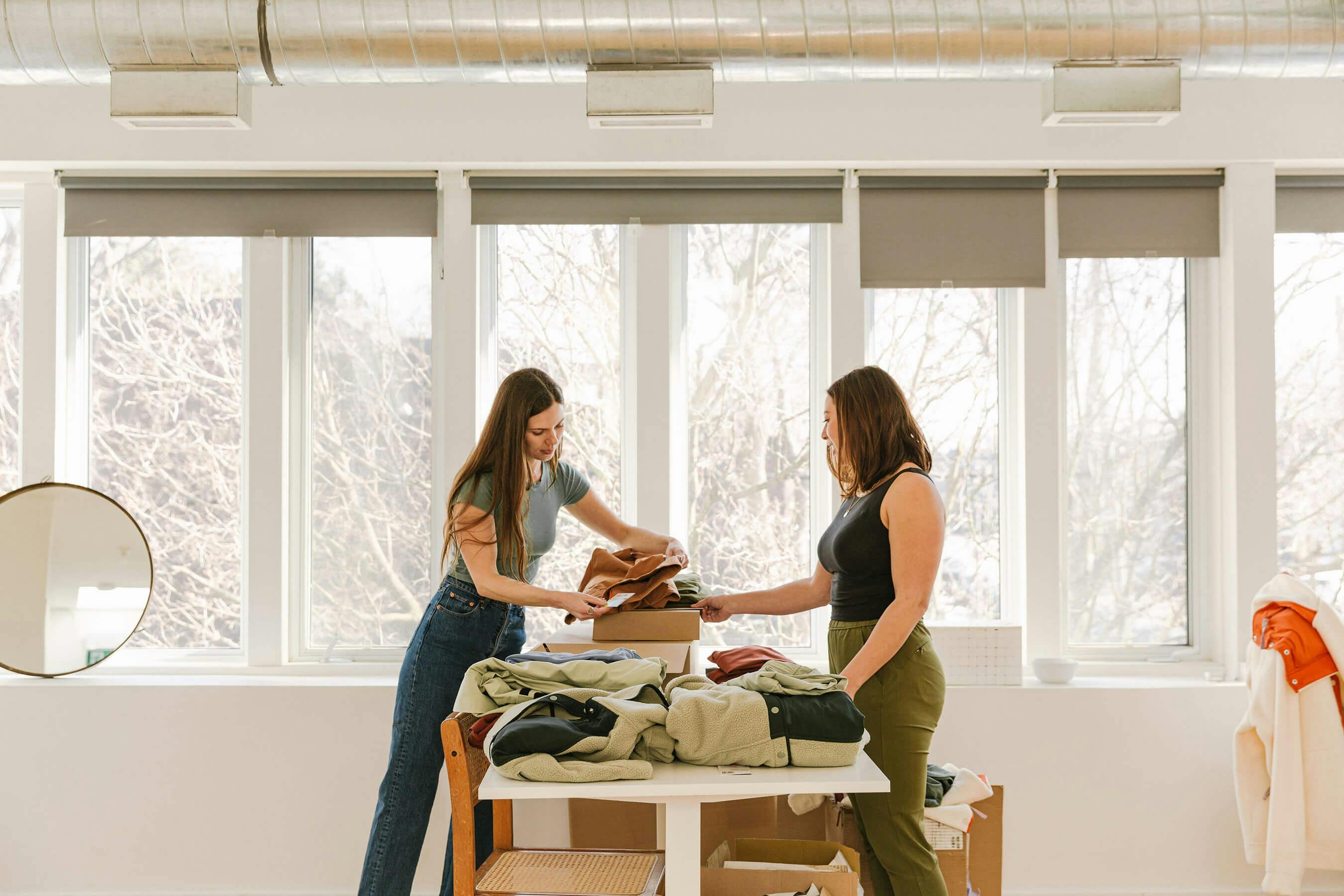


The joy of being friends and founders
The ups and downs of fundraising are just one aspect of building alder that makes the friends grateful to be in it together. “We have gone through some really high highs and some pretty low lows,” Naomi said. “Whether in seeking investment or operational challenges or hearing that there’s a boat stuck in a canal with our products aboard, we’ve been through it.”
Alongside the challenges, there has been consistent mutual support between these two co-founders. “I don’t want to give anyone the impression that there aren't hardships, but one of the blessings of having a co-founder who’s also a friend is that you have someone who can be there to offer emotional as well as operational support,” Naomi said. Their deep connection and shared values, she added, have “made it a pleasure to bring alder to life.”
I don’t want to give anyone the impression that there aren't hardships, but one of the blessings of having a co-founder who’s also a friend is that you have someone who can be there to offer emotional as well as operational support.
Preserving that connection and keeping joy at the center of their partnership as they continue to grow is a priority for both women. “We attribute the success of our co-founder relationship to our respectful and transparent communication style,” Mikayla said. “We've heard lots of stories of co-founder relationships falling apart, and we really want to invest in a healthy relationship and put time and energy into that.”
The pair’s focus on continuous, honest communication has led them to think ahead to issues and decisions that might arise to make sure they’re aligned on potential challenges. “We've talked through every dark, horrible scenario we think we might face as co-founders,” Mikayla said. “Those conversations will offer us a pre-defined pathway born from a place of respect and positivity from the beginning.”
Creating a new “outdoorsy” community
From the first pair of pants they dreamed up together, alder’s offerings now include a plethora of other products: a raincoat, dress, t-shirt, tank top, shorts, and fleece coat. And there’s more in the pipeline.
While designing and delivering functional, fun, durable apparel drives the daily operation, the co-founders’ broader mission is still to get more people to enjoy the outdoors through their lens of inclusivity and diversity. That vision is becoming reality in large part due to the fast-growing community of customers who are wearing alder products in the wild — and raving about the brand. The co-founders are committed to serving and listening to that community — the same one that has helped them develop products through meaningful input.
“One of the things we're excited about as we think about growth is offering pop-up retail experiences, where we can bring the alder brand to life and create a hub for our community to gather and experience the outdoors together,” Naomi said. The co-founders see the company as uniquely positioned to create events around the brand, which could be a major differentiator.
“We really want to be that conduit for bringing our community together to either try new outdoor activities or learn something new in the outdoors,” Naomi said. While the more traditional outdoor brands might have you think that everyone wearing hiking pants is engaged in a multi-day trek, the co-founders routinely hear from community members about the joy they find in activities beyond that limited scope. They are hunting for mushrooms and birding and painting outdoors. They’re taking photos and taking their dogs for walks and engaged in scientific and conservation efforts. Mostly, they are seeking the joy that comes from being outside.
Alongside the goal of sharing the joy of the outdoors with their community, the co-founders have strategic goals to grow their reach and their product line: “Right now we have about 80% of our customer base in the U.S. and about 20% in Canada, and we’re looking to expand our footprint in both countries.” To help meet those goals, alder has partnered with MEC (Mountain Equipment Company) to launch products in brick-and-mortar stores in Canada, and they’re working on securing additional retail partnerships throughout 2022.


All of these things can be true
Listening to Mikayla and Naomi describe their journey to date, the dual threads of ambition and mindfulness are hard to miss. That’s because prioritizing well-being for yourself and your team are not mutually exclusive while building an impactful, global business.
To date, their approach has proven the point: You can be ambitious and joyful, introverted and an ace at pitching your business. You can scale a company and work four days a week. You can be a National Geographic Explorer and find contentment in a walk in the park, or a marketing expert whose best days are spent outside with your dog under a clear, blue sky. You can appreciate the big-name players in your industry and learn from their legacy, and you can also be confident that you have something new and valuable to share.
In all these ways and more, alder’s co-founders are creating a world where everyone feels welcome and empowered, and they're writing a new — and joyful! — narrative for themselves and their community along the way.

Photography by Jemel May
